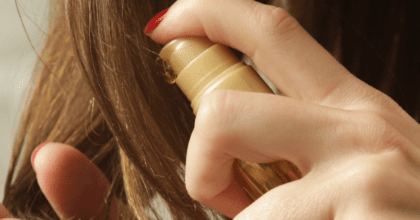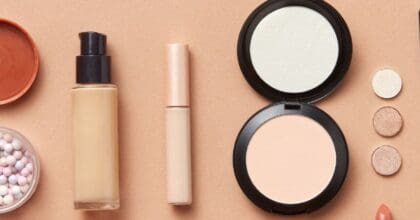Britain’s men get better with age: 75% of men aged 65 and over feel confident about how they look
It would seem that just like fine wine, Britain’s men get better with age. Indeed, according to Mintel’s Men’s Facial Skincare 2017 Report, as many as 75% of men aged 65 and over feel confident about the way they look, compared to just over half (56%) of men aged 16-24 and an average of 61% of all men. What is more, while 67% of all men say they look good for their age, this increases to a self-assured 71% of those aged 65 and over.
Proving Britain’s men are happy to accept ageing with grace, almost four in five (78%) men agree that it is acceptable to have some wrinkles, while 68% agree that skin ageing is a natural process that can’t be stopped.
However, while the majority of men adopt a relaxed attitude towards their appearance, true to the “so vain” words of Carly Simon, some two in five (38%) men say they check themselves in the mirror throughout the day, rising to 65% of those aged 16-24. What’s more, almost one in five (18%) men enjoy taking selfies, rising to 35% of 16-24s. And while 25-34-year-old men are most likely to say they like posting pictures of themselves on social media (39%), those aged 45-54 (13%) are not averse to uploading the odd image too.
Roshida Khanom, Associate Director, Beauty & Personal Care at Mintel, said:
“Today’s older men are brimming with self confidence, with high proportions thinking that they look good for their age and feeling confident about the way they look. Following role models such as Pierce Brosnan, Hugh Grant and Colin Firth, Britain’s older men are adopting a relaxed attitude towards ageing with the majority of men agreeing that ageing is acceptable, and that skin ageing is a natural process. Whilst advertising in the women’s facial skincare category often features photoshopping to optimise the appearance of skin and reduce the appearance of wrinkles, such images may not appeal to men. Allowing skin to look aged but healthy may instead have greater resonance.”
However, it appears that the confidence of the UK’s men may be affecting sales of facial skincare products. While as many as half (51%) of men believe that a healthy diet is enough to maintain the appearance of skin and 39% feel that skincare products contain unnecessary chemicals, sales of men’s skincare products are forecast to decline in 2017.
The men’s facial skincare category was valued at £104 million in 2016; however, things are not looking too beautiful for future sales, as this year the market is expected to decline 4.7% with sales dropping to £100 million. What is more, in the next five years Mintel forecasts that the men’s facial skincare market will decline 7% falling to £93 million. But while sales are declining, Mintel highlights a definite trend towards more upmarket products. Indeed, while mass-market male facial skincare declined by 1.5% between 2015 and 2016, the value of prestige male skincare showed strong growth of 2.8% in the same timeframe.
Mintel research highlights a less is more approach towards men’s skincare regimes as only 15% of male moisturiser users apply moisturiser more than once a day, whilst 28% use it a few times a week. Meanwhile, almost three in 10 (28%) men who use facial skincare products use them when their skin feels like it needs them and a quarter (24%) of men who use facial skincare products say they use them when they remember to do so.
Currently, the top three facial skincare products are soap (87%), moisturiser (50%) and lip balm (38%). There has also been a sharp rise in the number of men using facial wipes which grew from 26% in 2016 to 32% in 2017.
“It appears that high confidence may be impacting usage of facial skincare products, as many British men do not think they need to use them. This suggests that products should target maintaining appearance, rather than ‘fixing’ a problem. Highlighting the benefits of long term and regular use is crucial in ensuring good facial skincare habits. The fact that so many men believe a healthy diet is enough to maintain the appearance of skin and that products contain unnecessary chemicals suggests that some men may actively avoid facial skincare products and instead use diet to maintain their skin. As such, products with a natural positioning and limited ingredient lists could appeal more to men.” Roshida adds.
Finally, while things might be looking a bit hairy for the men’s facial skincare category as a whole, facial hair remains a growing trend amongst British men. Usage of beard products has risen from 18% in 2016 to 23% in 2017 and almost two in five (38%) men say they pay more attention to their facial hair than their facial skin. While 68% of men are removing hair from their jawline, more than half (53%) of males agree that it is fashionable to have a beard.
“The fact that so many men are removing hair from their jawline, but over half agree that it is fashionable to have a beard, suggests that the beard trend may have evolved to a more flexible approach with men shaping their facial hair rather than sporting full beards or opting for a clean shave.” Roshida concludes.
Press review copies of Mintel’s Men’s Facial Skincare 2017 Report and interviews with Roshida Khanom, Associate Director, Beauty & Personal Care at Mintel, are available on request from the press office.
-
Mintel StoreGet smart fast with our exclusive market research reports, delivering the latest data, innovation, trends and strategic recommendations....View reports
-
Mintel LeapMintel Leap is a revolutionary new AI-powered platform that will transform your research process....Book a demo







































